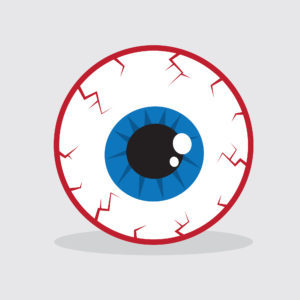Is it Seasonal Allergies or Dry Eye?

Most of us have experienced scratchiness, irritation, or a burning sensation in our eyes. Since dry eye syndrome and seasonal allergies are two of the most common conditions that can affect our eyes, it may be difficult to distinguish between them. In addition, both conditions may affect the eyes simultaneously, compounding the symptoms. Fortunately, at The Eye Institute of Utah, our eye doctors can perform a dry eye examination to determine the cause of your symptoms and prescribe the appropriate treatment plan.
Dry Eye Disease can occur due to two primary causes: 1) the eyes may not produce enough tears or 2) the patient may have a condition called Meibomian Gland Dysfunction (or MGD), where the glands in the eyelids become clogged or have issues producing the oil component of tears, causing the eyes to dry out. More than 86% of all patients with dry eye disease have Meibomian Gland Dysfunction, so our dry eye team is committed to treating MGD, the root cause of dry eye, to slow or halt the progression of dry eye disease and restore a healthy tear balance.
Common symptoms of dry eye disease may include sensitivity to light, dryness and itchiness, the feeling of a foreign body in the eye, fluctuating vision, eye fatigue, and excess watering.
With seasonal allergies, symptoms may be very similar to dry eye, but the telltale sign is itchiness. When the eye is sensitive to an allergen such as pollen or pet dander, histamine is released, causing the eyes to itch, tear, and redden.
Depending upon which condition is affecting your eyes, the treatment will vary. For seasonal allergies, an antihistamine can often be quite effective. The best treatment options for dry eye syndrome vary from case to case and can range from prescription eye drops such as RESTASIS®, to advanced therapies that treat MGD such as the LipiFlow® Thermal Pulsation System or Intense Pulsed Light (IPL) Therapy. Our practice offers a comprehensive examination and treatment program for dry eye syndrome. During your consultation, our eye doctor will examine your eyes, determine the cause of your symptoms, and recommend a treatment that can best meet your unique needs.
